Cillian Murphy On ‘Peaky Blinders’ Final Season & Spending Nearly A Decade In Tommy Shelby’s Skin
- Oops!Something went wrong.Please try again later.
- Oops!Something went wrong.Please try again later.

SPOILER ALERT: This post contains details of the final season of Peaky Blinders.
EXCLUSIVE: The sixth and final season of Peaky Blinders hits Netflix on Friday, after having aired to record ratings on BBC One in the UK earlier this year. Star Cillian Murphy, who plays Tommy Shelby, the head of the epic saga’s titular gang, recently reflected with Deadline on a decade of being in the tortured character’s skin.
More from Deadline
Created by Steven Knight and produced by Caryn Mandabach Productions, Peaky began in 2013, going on to win a Best Drama BAFTA in its fourth season. Over the years it grew a rabid global fanbase. For its final season, it was forced to pivot as Covid hit while the show also dealt with the loss of beloved co-star Helen McCrory, who passed away before shooting began, another thing Murphy discusses below.
While the series is ending, a film is being plotted and Murphy tells us, “If there is more story to be told, I’ll be there.”
(This interview has been condensed and edited for clarity.)
DEADLINE: You’re just back from shooting Christopher Nolan’s Oppenheimer and have had some distance from Peaky, but you’ve told me before that the prep to get into the character of Tommy was intense. How much or how quickly were you able to leave him in the past?
CILLIAN MURPHY: As you said, I went off and did other things. Around this time last year we finished shooting and then I had about six months off and then I just finished Oppenheimer two weeks ago. So I feel like I’ve definitely shed that skin and had to climb into another one since then.
But the fact that it’s actually only coming onto Netflix now means that it’s kind of another section of the world or fans that can get to see it. I’m very pleased. I’m very proud of it — this last series — because it wasn’t an easy genesis.
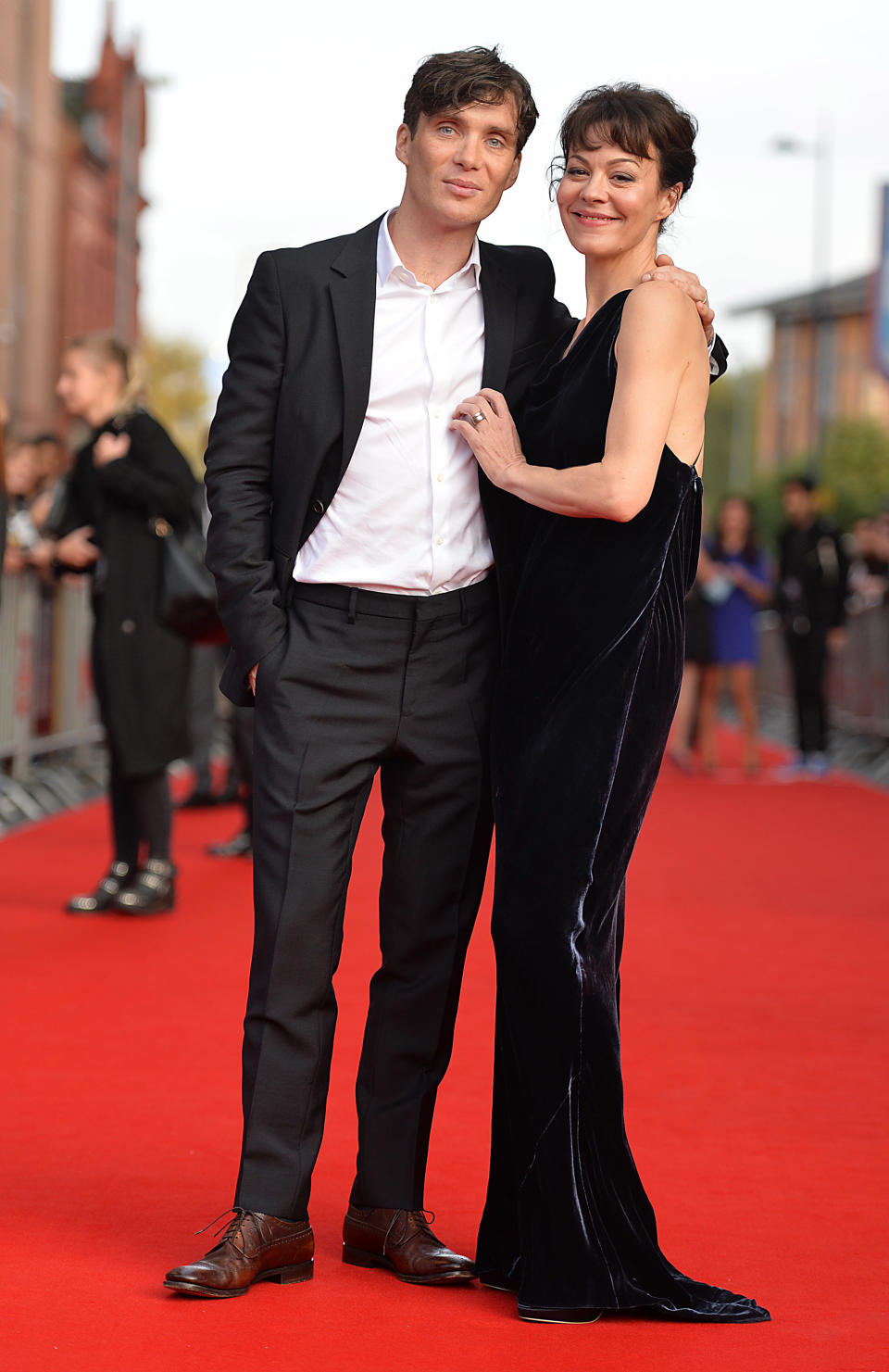
AP
DEADLINE: Do you feel in any way like Helen was there when you guys ended up finally getting into production? She appears in flashback in the final season and sort of looms over it in a way…
MURPHY: Yes. And it was all so confused and complicated by Covid because we were initially five days from shooting Series [Season] 6 and that would have had Helen in it. And then we had to shut down because of Covid and lockdown and everything.
I often think about that version of Series 6 and if we had been able to shoot it then, you know? And then obviously the world decided otherwise. Then we had to go back and regroup again and shoot it and she didn’t end up being in it. So, I always think about that. But I think Steve managed to keep her character alive in there and it feels like she has a strong presence, and certainly for Tommy, throughout it all.
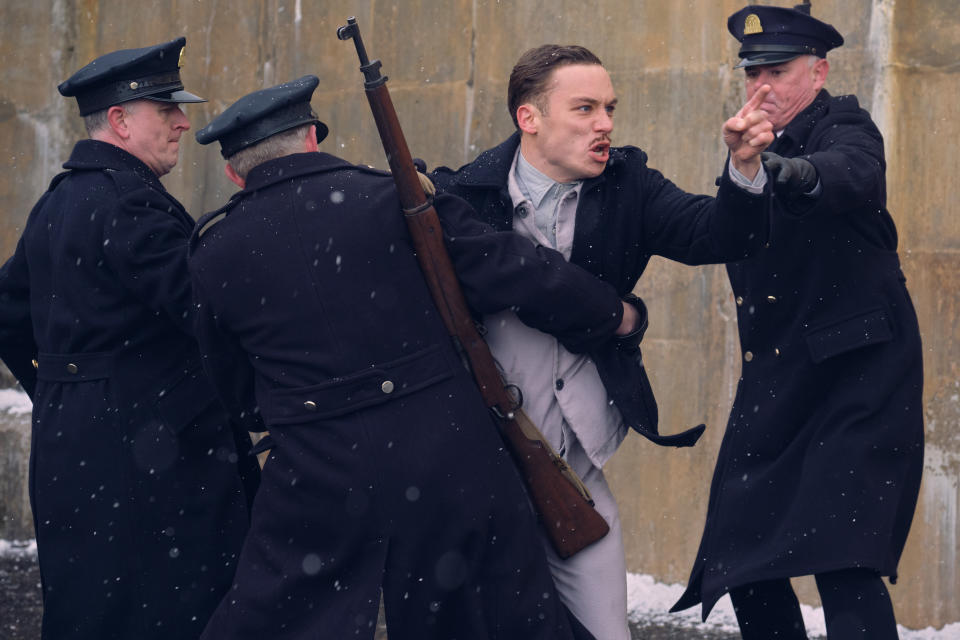
Netflix
DEADLINE: The whole season leads up to a settling of accounts for Tommy. For me, there’s always been a sort of Godfather theme running through the show. What’s your take on that?
MURPHY: I think you make a gangster show, you’re always aware of the great gangster films, of America really. There’s a very narrow corridor and you kind of bump shoulders with these stories as you go along inevitably. I think ours differentiates itself very much because of the British setting and the British culture, and the working-class story is obviously a big deal. And then, if you make a family saga — this goes way back to Shakespeare — there’s always the transition of power and the way people want to hold on to power and achieve power. That’s definitely part of our story, for sure, but you know we never consciously — ever — tipped our hat to those films. When people see references to them I suppose that’s subconsciously coming from us.
DEADLINE: Did you read the whole of Season 6 before you shot it?
MURPHY: One of the gifts of this show has been that we’ve always had six finished scripts at the beginning. I tell that to friends of mine that work on TV shows and they can’t believe it because you hear about people starting shows with one script and not knowing where it’s going to go. We’ve had this genius of a writer all the way through, you know, 36 hours of television — it’s an absolute gift to have it.
Obviously we had to change in the face of circumstances, but Steve is an amazingly adaptable writer as well, which is another gift for us.
DEADLINE: You’re an executive producer, too. Were you happy with the way things wrapped up?
MURPHY: I was very happy with the quality of the writing, particularly with that last finale — it was just excellently directed and conceived and performed by everybody. I do have to pay tribute to our crew. It was like the height of the second lockdown in the UK. It was insane the conditions we were working under, and they were just amazing. I’m very, very proud of it.
DEADLINE: In a way, Tommy is freed of so much at the end and he’s lost so much, while at the same time he’s also got this sort of new shot at life. In Season 1, he arrives on a black steed and in the finale of Season 6, he rides off on a white one. Do you think he’s been redeemed?
MURPHY: I always felt that was one for the court of public opinion. I could not really say whether people felt that themselves, the audience, because I just needed to play the truth of what the story was and where the character found himself. That whole thing about redemption, it’s so kind of subjective really, isn’t it?
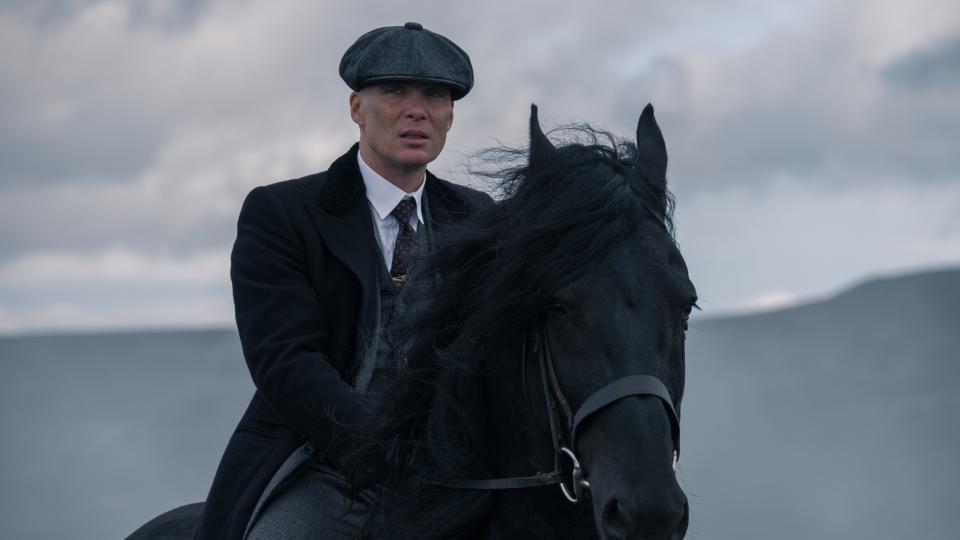
Matt Squire | © Caryn Mandabach Productions Ltd 2017
DEADLINE: Any idea where he goes next?
MURPHY: I really have no idea. Steve always surprises. Whenever you read a script from him it is never how you expected or what you thought might happen. It’s always in fact completely the opposite. He manages to kind of subvert that gangster narrative very well I think. I don’t know, I really, really don’t know. I haven’t read any film script or anything like that so I can’t give you any exclusive on that, Nancy, I’m afraid.
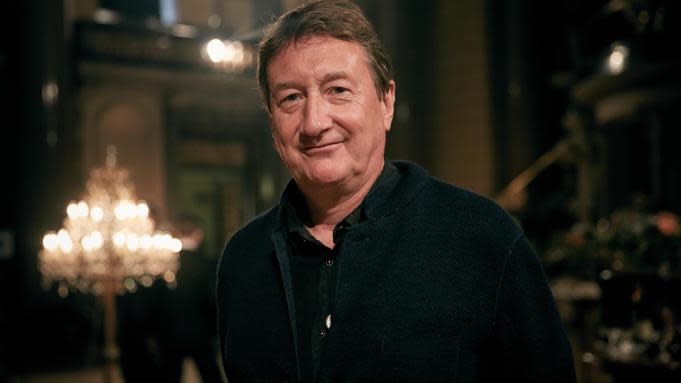
Caryn Mandabach Productions Ltd & Tiger Aspect Productions Ltd
DEADLINE: What do you know about a movie at this point?
MURPHY: Genuinely nothing and I’d be as excited as anybody to read a script. But I think it’s good for everyone to have a little break. That’s always a healthy thing and then we can regroup. Steve is an insanely busy and in-demand writer, but I know that he loves writing Peaky above all, I’m sure he’s told you the same. He adores it. So I think when the time comes, if there’s more story to be told, I’ll be there.
DEADLINE: Turning back to the final season, your mom is a French teacher, right? I was really impressed with your French in the scenes on Miquelon Island…
MURPHY: Oh yes, of course, you’re a French speaker. My French used to be really, really good when I was about 20 and then I just abandoned it all and turned my back on it which was a stupid decision. I sent (the scripts) to her and she sent them back to me and we worked out how to make it as conversational as possible. We didn’t want it to be too formal cause you would have picked up that sort of French in the trenches back in the day. So yes, my mother was the French teacher on the job even though she didn’t get a credit.
DEADLINE: Consider her credited now. As you know, I’ve been to set a couple of times and it’s all quite intense and you guys have to work fast. Are you able on that kind of show to have some laughs as well?
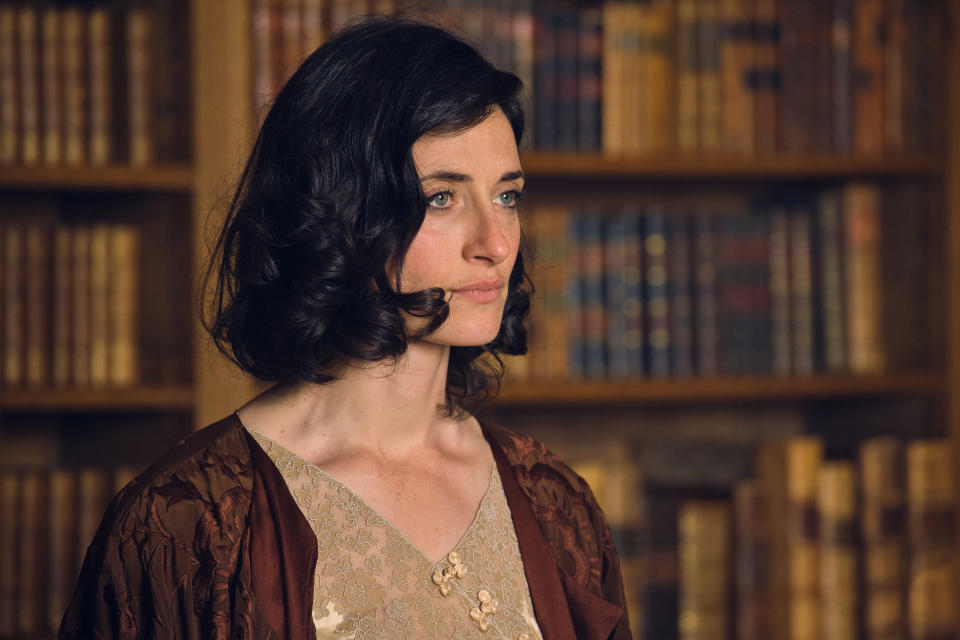
Netflix
MURPHY: Oh yeah. I mean we always do our best. Myself and Natasha O’Keeffe, who is an amazing actor — I really thought our storyline this year was brilliant — we always end up having a great laugh with her.
You know, it was particularly difficult for me this time because I couldn’t go home at all and I was in Manchester the whole time. Normally, I would fly home at the weekends, but I couldn’t go back because I wouldn’t have been able to come back because of the two-week quarantine. So I stayed in this little flat in Manchester for five months. I became kind of like more of a weirdo hermit than I am already. But it was kind of good. It was useful for what Tommy was going through, even though I would never like to repeat it again.
It was just so strange, but when that happens you just go, “Right, well I’m going to go even deeper into the work.” There’s nothing else to do. There was nothing open, no restaurants. It was just myself and Tommy Shelby — who you don’t want to be alone with for five months, believe me.
DEADLINE: And yet you ended up spending nearly 10 years playing him. Looking back, has your perspective changed — from where you were when you started playing Tommy and the success of the show, and where you are now? It’s a long time, even though you didn’t have what used to be those crazy American schedules of 26 episodes, but you were making three feature films every year…
MURPHY: I feel just hugely, hugely grateful for it. I still can’t believe it’s been almost a decade of my life. I think I encountered some of the greatest writing I’ve ever encountered on that show for sure; some of the greatest actors I’ve ever encountered. I never thought I’d get to play a character that would last a decade and be able to go so deep and have such rich material. And then, to pretty much make it as we wanted to make it. You know, on our own terms and then all the musicians that became involved, all the great directors that became involved over the years.
When you look back on it, it is quite humbling. It doesn’t feel like I’ve had enough perspective on it, but I do feel just really, really grateful to play that character and to bring Steve’s writing to life. It was phenomenal — when you think about what he’s done, it’s kind of astonishing.
The good thing about it was, like you mentioned, the American shows where they just own you, so all of us actors got to go and do other interesting work in between which I think was essential. I got to go off and do crazy plays and other films. I think if it had taken away that ability to go and do other work I might not feel so grateful, but I feel tremendously grateful.
DEADLINE: Speaking of other work, you did those great BBC Radio 6 Limited Edition shows in the past couple years, from your basement, right?
MURPHY: Oh, yes. I had to do something. I really, really thoroughly enjoy making those shows. I met a great producer and I just sit in my basement playing tunes, which is what I do a lot of the time on my own. I needed some sort of creative outlet. As actors, we need a community to make something and when that’s taken away and you’re on your own you still have that impulse to be creative, so the radio show just helped me and I was very lucky to do it.
If you put a seed in the ground, it will find its way around a rock, you know what I mean? But I’m being too philosophical. It’s that the creative stuff will come out eventually, no matter how much you suppress it.
DEADLINE: Are you thinking about revisiting your music career?
MURPHY: Absolutely 100% categorically no. But I will play other people’s music quite happily on the radio.
DEADLINE: You’ve also randomly done a number of shorts. Do you seek that out?
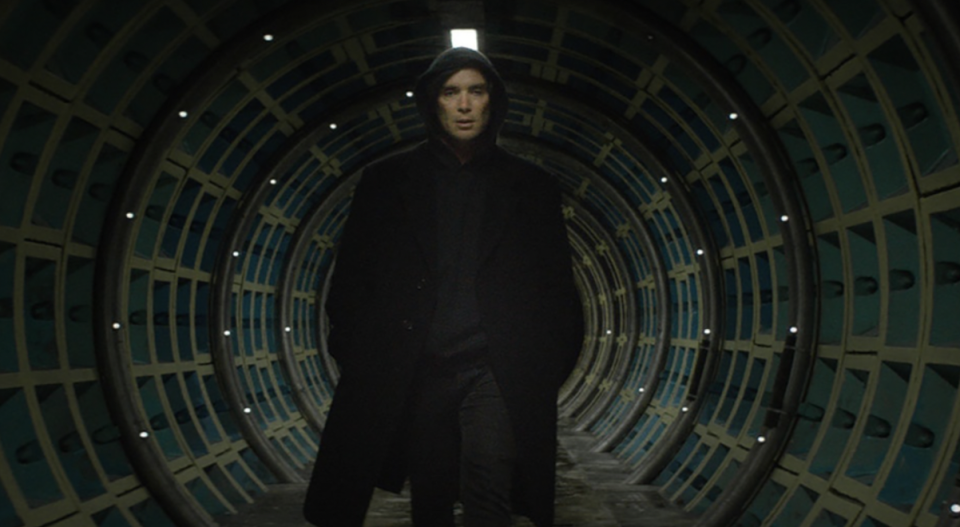
Tribeca Festival
MURPHY: I’ve tried to over the years. Really, the medium is second to the writing. If there’s good writing to be found in theaters, in telly, in films, a short film, that’s what I’ll try and track down. I’ve always tried to stay true to that.
The last short I did we made during lockdown. It was written by Max Porter and it’s called All of This Unreal Time. It played at the Manchester International Film Festival. And it’s one of my favorite things that I’ve ever done — I don’t know how many people have seen it — but it’s one of the things that I’m most proud of. It’s playing in Tribeca, so maybe a few more people will see it.
DEADLINE: What’s your state of mind these days, now that the world is starting to return to normal?
MURPHY: It was kind of very interesting, even when we were shooting Oppenheimer. In the beginning everybody was masked all the time cause we shot through February until just recently and all the mandates had changed [by the end] and you could see things. It just felt things were a little more, hopeful, even in our little microcosm, the cast and crew.
I’m looking forward to the return of spontaneity, less protocols and less procedural stuff because it’s an uneasy environment when you’ve got a huge amount of protocols and rules and you’re trying to be spontaneous and creative.
DEADLINE: Oppenheimer comes out in July 2023. What else are you up to?
MURPHY: I’m just having a rest. I always like to take, if I can, six months off after a job. I think you just need to recharge everything. But at the moment I am 100% unemployed and happy with that.
Best of Deadline
2022-23 Awards Season Calendar - Dates For The Oscars, Emmys, Tonys, Guilds, Festivals & More
NFL 2022 Schedule: Primetime TV Games, Thanksgiving Menu, Christmas Tripleheader & More
Sign up for Deadline's Newsletter. For the latest news, follow us on Facebook, Twitter, and Instagram.

